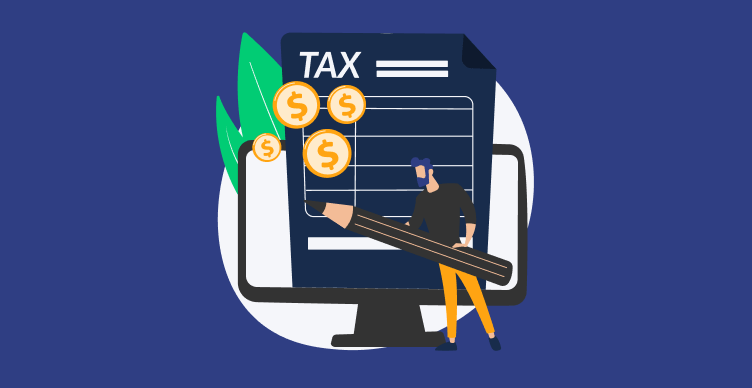When renting out an apartment to somebody, one of the most important parts is having a valid proof of income.
Proof of income is basically any documentation that proves to the landlord that the tenant earns as much as they say they do.
It is an especially important part of the tenant screening process and should never be skipped.
In this guide, we will be going over the importance of gathering proof of income, as well as the top 12 most common ways that tenants provide it.
So, to get started, let's go over why proof of income is so important.
Why Is Proof Of Income Important?
For some rental properties, the landlord or property manager sets minimums on the monthly income in order to rent. In these cases, they will want some way to verify income.
One of the main reasons that these landlords will request proof of income is to make sure that the tenant can afford the monthly rent payments. If the tenant does not make a certain amount, it is likely they cannot afford the monthly rent.
Apart from the monthly income, landlords also verify that the tenant has a consistent income. This is important to add to the income verification process because some tenants may have some money now but not be able to make consistent payments.
Providing proof of income can also benefit the renter in some cases. Once they are asked for this documentation, they may realize that they can't really afford to pay rent. They can also use it to vouch for themselves if any disputes about rent ever come up.
So, now that we know why it is so important to prove income, let's go over some of the best ways to do so. These can all act as income documents and can be used to prove a steady income or a certain annual income.
Top 12 Best Ways For Tenants To Show Proof Of Income
Below, we have compiled a list of the top 12 best ways that applicants can prove their income.
1. Pay Stubs
The most popular way for applicants to prove their own income is with pay stubs. Pay stubs are documents given to workers who work either full-time or part-time for an employer. These can typically be acquired through a company portal or by simply requesting them.
These documents reflect how much money the applicant is making as well as how often. A landlord can request pay stubs from a different pay period as well. Doing this helps the landlord know whether or not the income fluctuates.
However, a pay stub can be forged. So, it is important to know how to spot fake ones. Visit this complete guide to learn how to spot fake pay stubs.
2. Bank Statements
Another very popular way for applicants to prove their income is by providing their bank statements. Bank statements are the best way to go for people who do not receive regular pay stubs, like self-employed renters.
This can also be a good idea if the renter works for a commission and not a salary. By seeing a few months of their bank statements, you can determine if their income is steady enough to be a reliable renter.
3. W-2 Form
The next way for applicants to provide proof of income on the list is a W-2 Form. The W-2 is a standard income document that is used by the government to verify income for tax purposes. This form shows the applicant's income for the entire year as well as if it was consistent.
However, the only downside to using a W-2 is that it does not account for anything but income. This means that it does not include any information about raises, promotions, job changes, etc.
4. Tax Returns
Another effective way to verify an applicant's income is with their tax returns. They can typically be represented by a form called the IRS 1040. This form does not overstate the applicant's income and shows unearned income as well as overall income history.
However, this form may not be readily available to every applicant. It may also not represent their current income as it can be from a different year.
5. Income Letter
An income verification letter is a very easy document for applicants to obtain. This formal letter from the applicant's employer details the applicant's income as well as their tenure with the company.
This can also serve as a good way to learn about the applicant. Since the letter can double as a reference, you may be able to learn about the applicant's work ethic, attitude, or any other general personality traits.
6. 1099 Form
This tax form is generally only used by applicants who are self-employed. Since they are self-employed, they would not have a standard W-2.
The 1099 Form is a form that shows an applicant's wages and taxes for the entire year. Since these forms are submitted to the government, they are generally accurate and not forged.
7. Social Security Benefits Statement
A social security benefits statement is another reliable proof of income for applicants to submit. Since it is straight from the government, the landlord can be confident that it is reliable and consistent.
The only downside to this verification is that social security benefits can change. This means that the social security proof provided at the beginning of a tenancy can be different as time goes on.
8. Unemployment Benefits
If a tenant is not currently employed, they may be receiving unemployment benefits. If this is the case, they should have a proper unemployment statement that details exactly how much they are receiving.
It is important to note the expiration date on this income. Since unemployment benefits run out, a dispute may arise later into the tenancy.
9. Worker's Compensation Letter
If a tenant is receiving worker's compensation, they may be able to submit an award letter. This letter is acquired from the insurance company or court and is used to prove the income the worker is receiving.
However, it is important to be sure to verify an applicant's income after the compensation ends. This could be done by asking for additional documentation.
10. Pension Distribution Statement
A pension distribution statement is called a 1099-R on a tax return. This is typically a great proof of income because it describes all retirement benefits in one place. These benefits include pensions and annuities.
One of the downsides of these documents, however, is that the distributions can change over time. This can be a problem because the compensation may fall under the landlord's set minimum during the actual tenancy.
11. Court-Ordered Award Letters
If you are renting to a divorceé or a single parent, they may be receiving compensation from their former spouse or partner. In these cases, the renters should have clear proof of what they are receiving.
Then, the landlord can request these documents as part of the income verification. They can either request it from the renter or directly from the court.
12. Severance Statement
Lastly on this list is a severance statement. When a renter is laid off from their job, they are typically provided severance. In these cases, they also receive a document that states how much they will be receiving.
These documents can be used as proof of income. The statement usually entails a large cash deposit which can be used to help the tenant pay rent for some period of time.
Using these various forms of verification, you can easily calculate your prospective tenants' income when screening them. DoorLoop offers both a standard calculator and advanced calculator to make this easier for you.












































































































.svg)





















